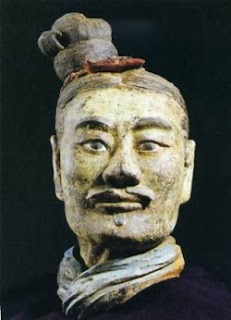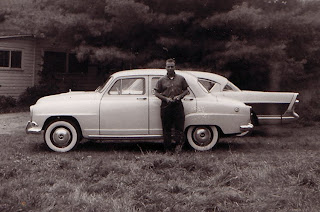I’m continually amazed by what young actors don’t know. Maybe it’s the world
we live in. Something about the air we breathe that suffocates intellectual curiosity. Whatever it is, and this isn’t a research paper into the fatal flaws inherent in modern life, young actors display a fearsome lack of knowledge about the world of the script they’re about to populate.
I’ve stated in an earlier post, several earlier posts, actually, that one of the actors jobs is to make the dramatic text his/her own reality during the visit, no matter what the duration, into the world of the play or screenplay.
When I first encountered
Chekhov’s “The Three Sisters”, I was struck by the curious reaction of the guests at Irina’s Name Day party, corresponding to what we would call her 21st birthday celebration, when Dr. Chebutykin presented her with a silver samovar. All the guests were thunderstruck, embarrassed. There were rivers of tears. Anton Chekhov, great writer that he was, one of the greatest in the history of theatre literature, saw no reason to explain this phenomenon. Why would he? The audience he wrote for would know instantly what the problem was.
I, not being Chekhov’s contemporary, despite having been called a museum piece on more than one occasion, didn’t know very much about life in pre-revolutionary Russia at the turn of the 20th Century.
So, without the benefit of google and the resources of the world-wide web (see – I am a museum piece!) I researched the bejesus out of it all and found my answers. Not just to the samovar issue, but to life for that class of people in that part of the world at that time in their history.
So if you’re waiting for me to slake your thirst and provide the answer. . . Or if you don’t know what a samovar is in the first place, well friend, may I refer you to Google, Wikipedia and all the other fabulous tools available to you today on the Internet. It’s called due diligence. And finding the answers, my actor friend, is your responsibility.
I could have produced “The Three Sisters” in a state of shining ignorance, but that would have created a hole in the fabric of the reality we were trying to create. A half-real world is no world at all, in my opinion. And in this forum, that’s the opinion that counts. You make a single mistake in the consistency of the world you’re creating, and that mistake can easily lead to another and so on – until the whole thing comes a cropper.
Here’s a question for you. If you came across the word “samovar” in a script you were reading the next day at a first rehearsal, and you didn’t know what the word meant, would you go to a dictionary to find out its’ meaning before the rehearsal? Be honest now. In my experience, most young actors would let it slip, try to throw it up in the air at rehearsal and see where it lands. I’m sorry to have to tell you that at best, that attitude is slipshod and at worst irresponsible. If you don't know what you're saying, there's a 90% chance the beat you play will be incorrect.
In this day and age there is also no excuse for saying or mispronouncing any word appearing in a dramatic text – unless that word is truly arcane and impossible to get your tongue around. Even then –know what it means and do your best to say it.
Every mistake we make in creating the world implied by the text – including the words spoken in that world, makes a hole in its unity and breaks the audience out of the illusion of reality we’re trying to project. Much more on that coming up.
























